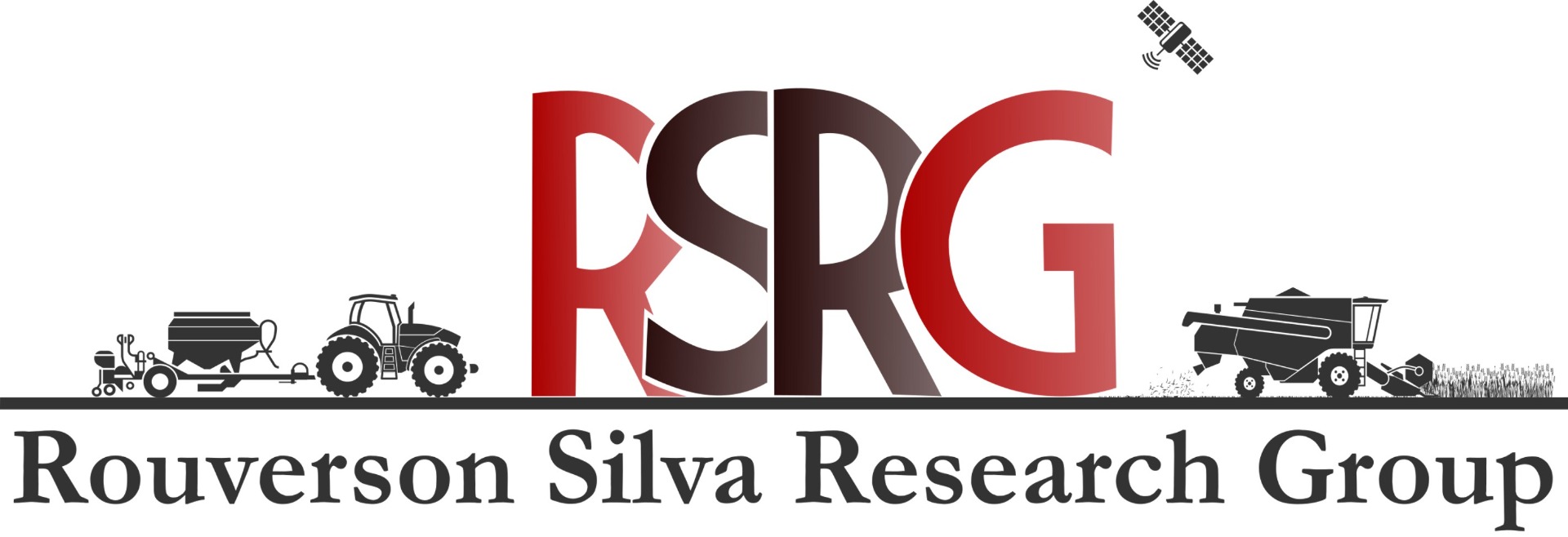International Partners
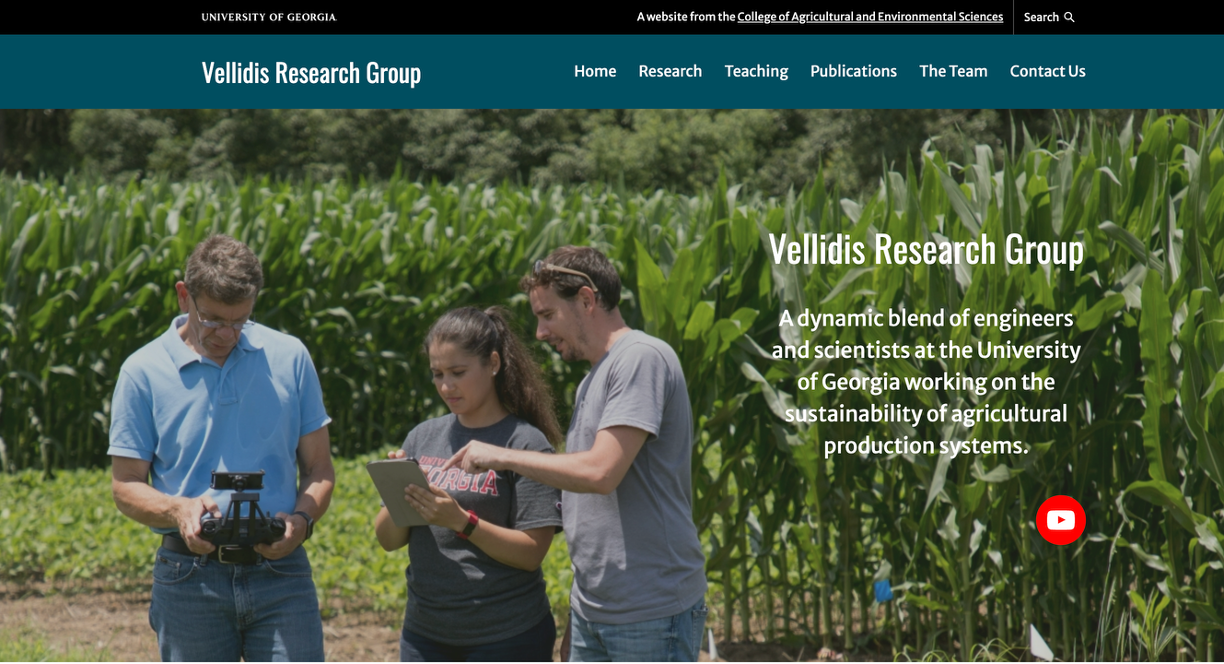
Vellidis Research Group
Dr. George Vellidis is a University Professor in the Department of Crop and Soil Sciences at the University of Georgia (UGA), based at the Tifton campus. He is also the Director of the Institute for Integrative Precision Agriculture (IIPA), a multidisciplinary initiative focused on advancing digital agriculture, food, and fiber systems through research, education, and outreach.
With a background in agricultural and biological engineering, Dr. Vellidis applies engineering and scientific principles to measure, model, and manage the interactions between agricultural production systems and the environment. His work emphasizes two key areas: precision agriculture and water resource management, often integrating both to develop sustainable farming solutions.
Dr. Vellidis teaches several courses annually, including:
- Principles of Precision Agriculture
- Topics in Precision Agriculture
- Introduction to Water Quality
Dr. Vellidis is a frequent keynote speaker at international conferences and has led initiatives such as the dual master's degree in Sustainable Agriculture between UGA and the University of Padova in Italy.
Since 2017, Dr. Vellidis has been a partner of the Rouverson Silva Research Group (RSRG/LAMMA), contributing to collaborative research and academic exchange between Brazil and the United States in the field of agricultural innovation and mechanization.
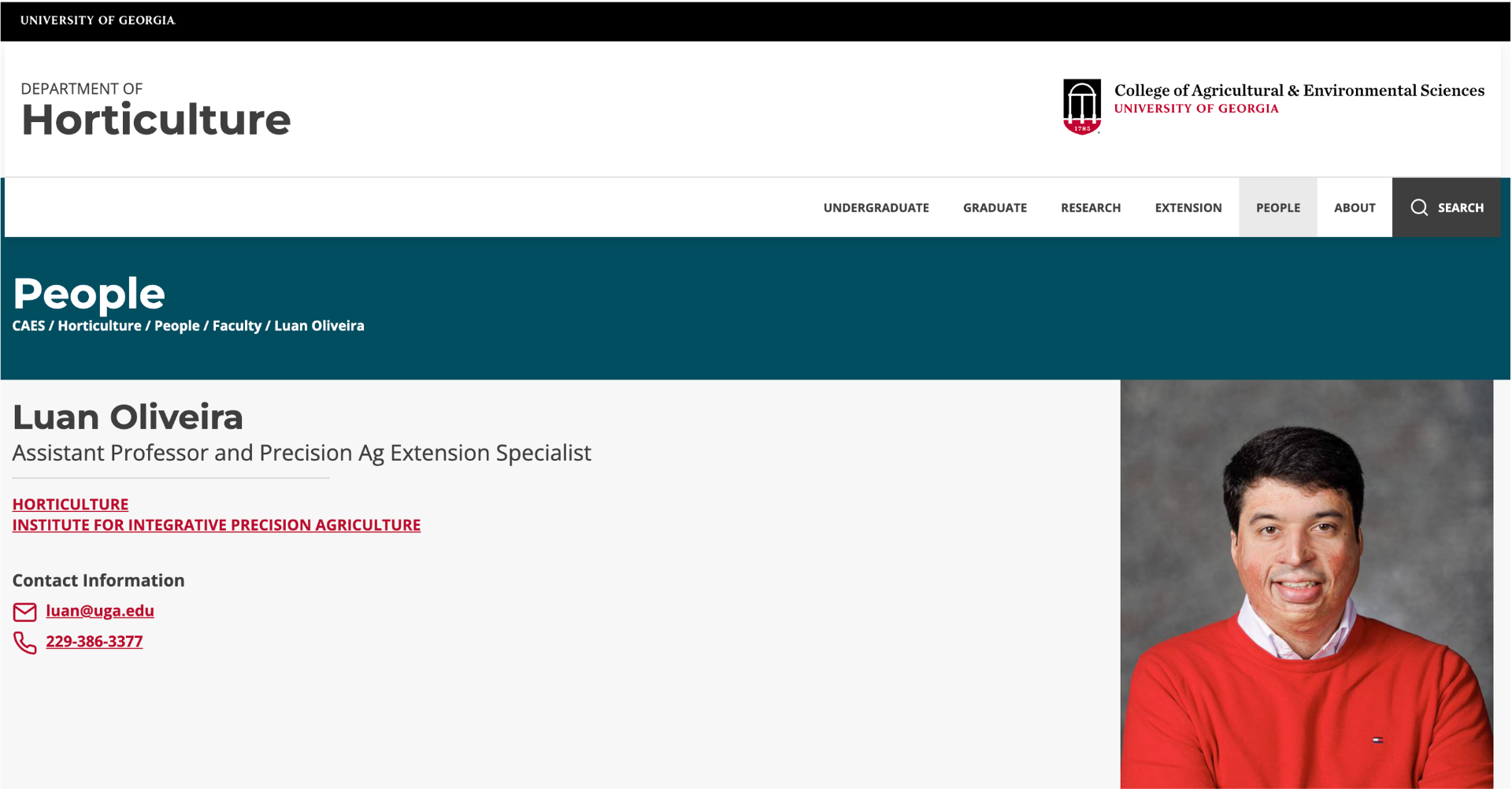
Dr. Luan Pereira de Oliveira
Dr. Luan Pereira de Oliveira is an Assistant Professor and Precision Agriculture Extension Specialist at the University of Georgia, based at the Tifton Campus. He holds a Ph.D. in Agronomy (Crop Production) from São Paulo State University, Brazil, and has a strong academic background in agronomic engineering and agribusiness.
Dr. Oliveira's research focuses on the evaluation and implementation of precision agriculture technologies to improve the efficiency and sustainability of vegetable and specialty crop production. He leads the Precision Horticulture Team, which is dedicated to enhancing mechanized agricultural operations—such as planting, spraying, and harvesting—through innovative solutions and technology-driven approaches.
A recipient of the prestigious Gerald O. Mott Award from the Crop Science Society of America in 2021, Dr. Oliveira has authored and co-authored numerous scientific publications, including refereed articles, extension materials, conference papers, and book chapters. He has also secured significant funding as both Principal Investigator and Co-PI.
Importantly, Dr. Oliveira is an esteemed alumnus of the Rouverson Silva Research Group (RSRG/LAMMA), where he contributed to interdisciplinary research initiatives that bridged agronomic science and technological innovation. His trajectory exemplifies the global impact of RSRG/LAMMA in shaping leaders in agricultural research and extension.
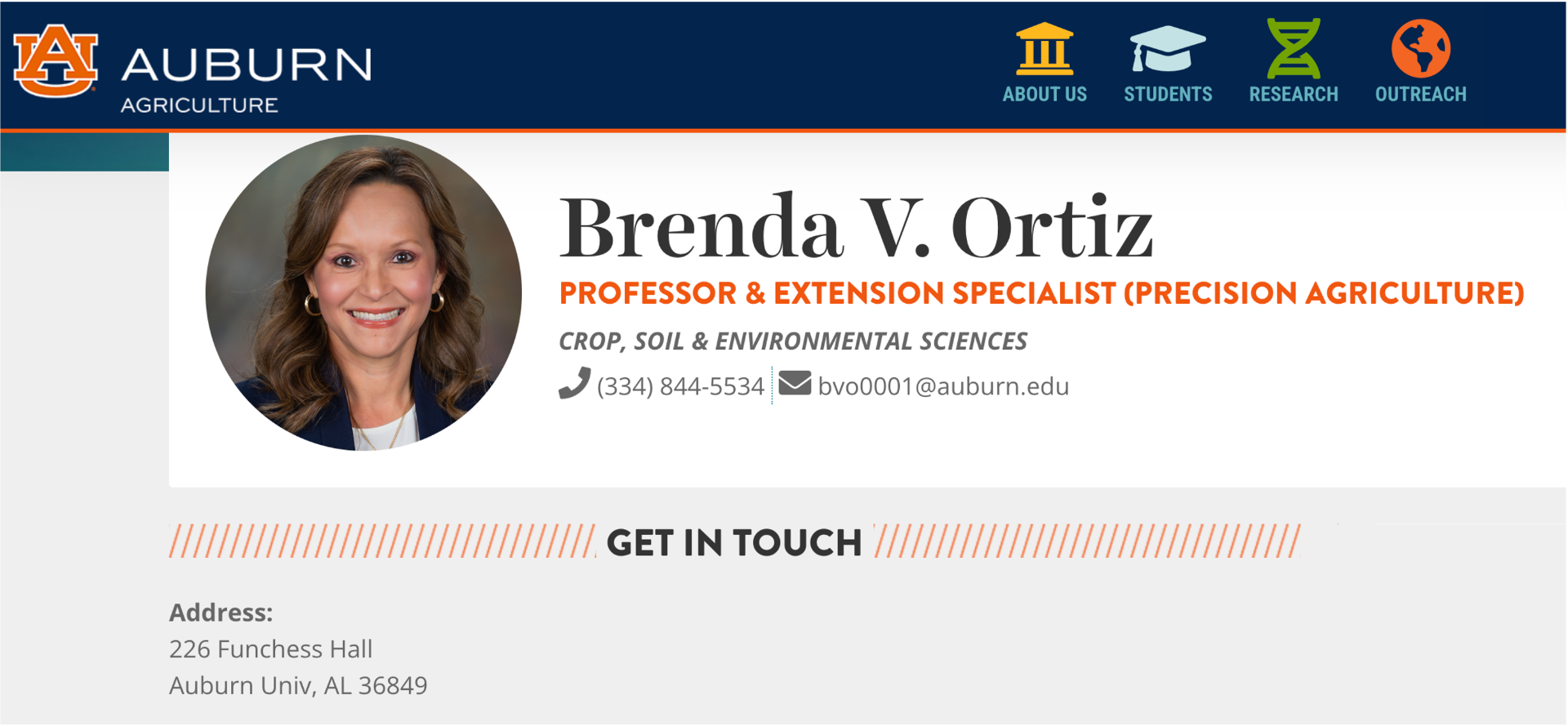
Dr. Brenda Ortiz
Dr. Brenda V. Ortiz is a Professor and Extension Specialist in Precision Agriculture at Auburn University's Department of Crop, Soil, and Environmental Sciences. With a Ph.D. in Biological and Agricultural Engineering from the University of Georgia, Dr. Ortiz has built a distinguished career focused on advancing digital agriculture, climate-smart irrigation strategies, and site-specific management practices for crop production.
Her research and extension efforts have earned her prestigious recognitions, including the Duncan Award for Excellence in Production Agriculture & Forestry Extension, reflecting her impactful work with farmers across Alabama and the Southeastern United States. She leads Auburn's statewide Precision Agriculture Extension Program, where she integrates cutting-edge technologies such as soil sensors, telematics, and crop modeling to improve agricultural efficiency and sustainability.
Since 2018, Dr. Ortiz has maintained a productive international collaboration with the Rouverson Silva Research Group (RSRG/LAMMA) at São Paulo State University (UNESP), Brazil. This partnership has fostered joint research initiatives, academic exchanges, and collaborative projects in precision agriculture, irrigation management, and agricultural digitalization. Her role as adjunct faculty at UNESP underscores her commitment to strengthening transnational scientific networks and promoting innovation in tropical agriculture.
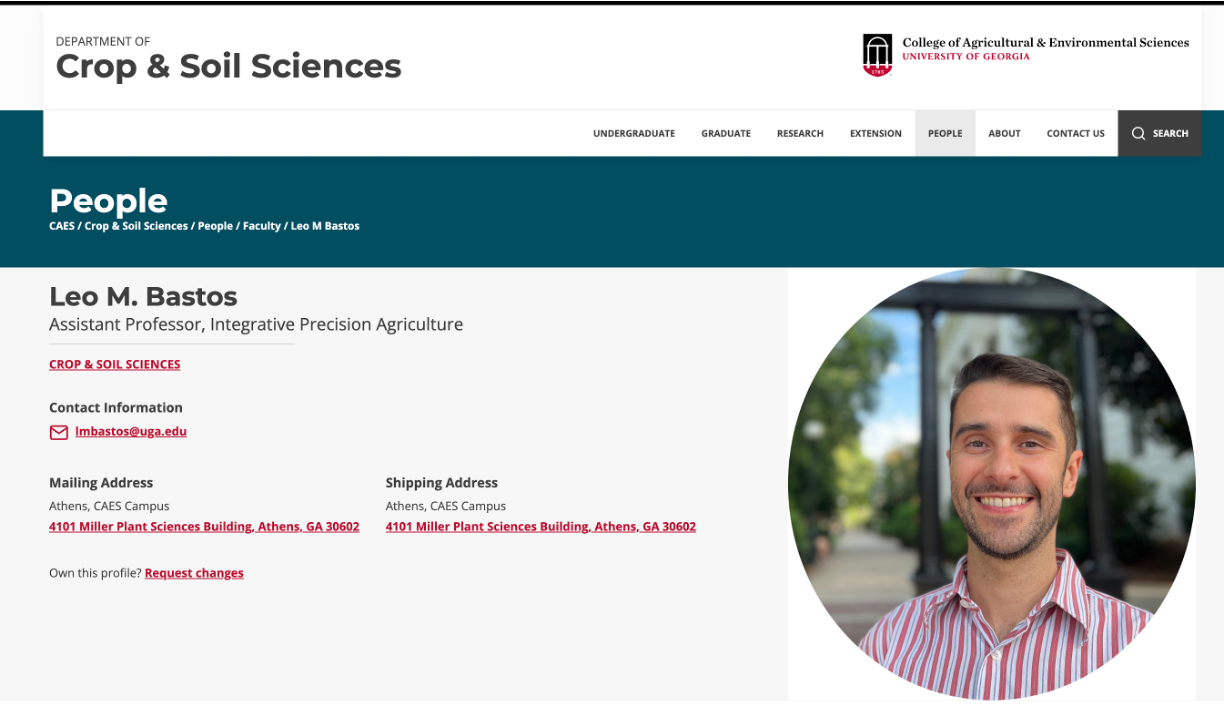
Dr. Leonardo Mendes Bastos
Dr. Leonardo Mendes Bastos is an Assistant Professor of Integrative Precision Agriculture in the Department of Crop and Soil Sciences at the University of Georgia, Athens. His research integrates proximal and remote sensing technologies, geospatial soil data, and temporal weather information to optimize crop management practices across scales—from individual fields to entire regions. His work places particular emphasis on nitrogen fertilizer management and crop quality mapping.
Dr. Bastos teaches courses in precision and digital agriculture, statistical programming, and data science applied to agricultural systems, contributing to the development of future leaders in agri-tech innovation.
His recent research projects are part of the Precision Agriculture Research Program at UGA, where he leads initiatives in Remote Sensing, Predictive and Digital Agriculture. These projects involve the use of UAVs, satellite imagery, and advanced data analytics to enhance decision-making in crop production systems. [Precision...l Sciences]
Dr. Bastos is also a valued partner of the Rouverson Silva Research Group (RSRG/LAMMA), collaborating on transdisciplinary initiatives that advance scientific exchange between Brazil and the United States in the field of agroindustrial innovation. His partnership with RSRG/LAMMA reflects a shared commitment to leveraging data-driven approaches for sustainable agricultural development.
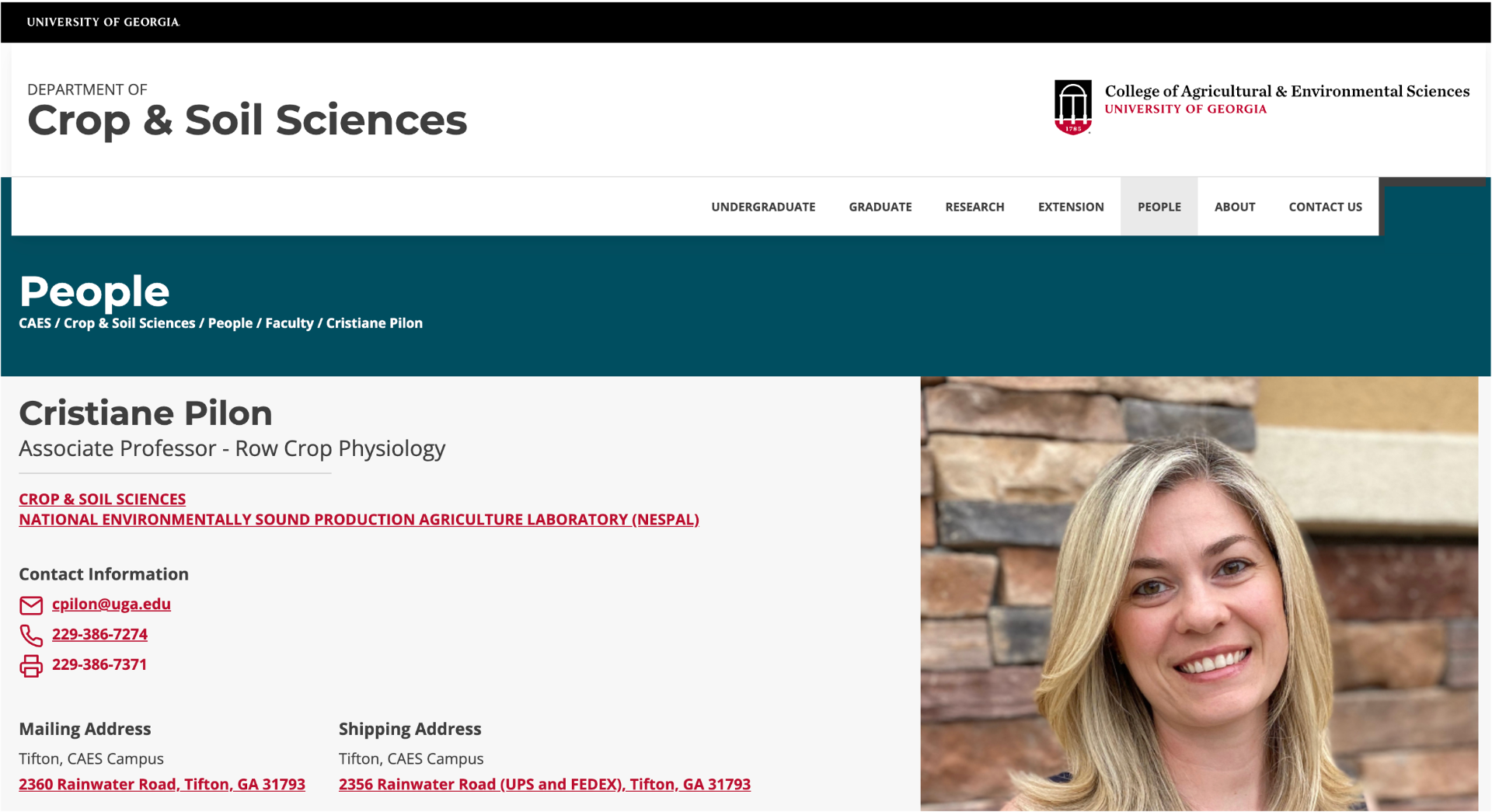
Dr. Cristiane Pilon
Dr. Cristiane Pilon has been an Associate Professor at the University of Georgia (UGA) since 2017, working in the Department of Crop & Soil Sciences with a focus on row crop physiology, particularly peanuts. Her appointment includes 75% research and 25% extension, aiming to enhance peanut production across Georgia.
Her research explores the physiological aspects of crop growth and development, seed quality, yield, water requirements, and responses to environmental stress. Dr. Pilon collaborates with a wide network of institutional partners, including UGA colleagues, the peanut team, USDA-ARS researchers, the Georgia Peanut Commission, and other stakeholders in the agricultural sector.
Since 2018, she has been a partner of the Rouverson Silva Research Group (RSRG), contributing to collaborative research and scientific exchange between Brazil and the United States in the agro-industrial peanut sector.
In her extension role, Dr. Pilon supports training programs for county agents, develops educational materials, and provides technical assistance to the peanut extension team.
She is based at UGA's Tifton campus and is also affiliated with the National Environmentally Sound Production Agriculture Laboratory (NESPAL).
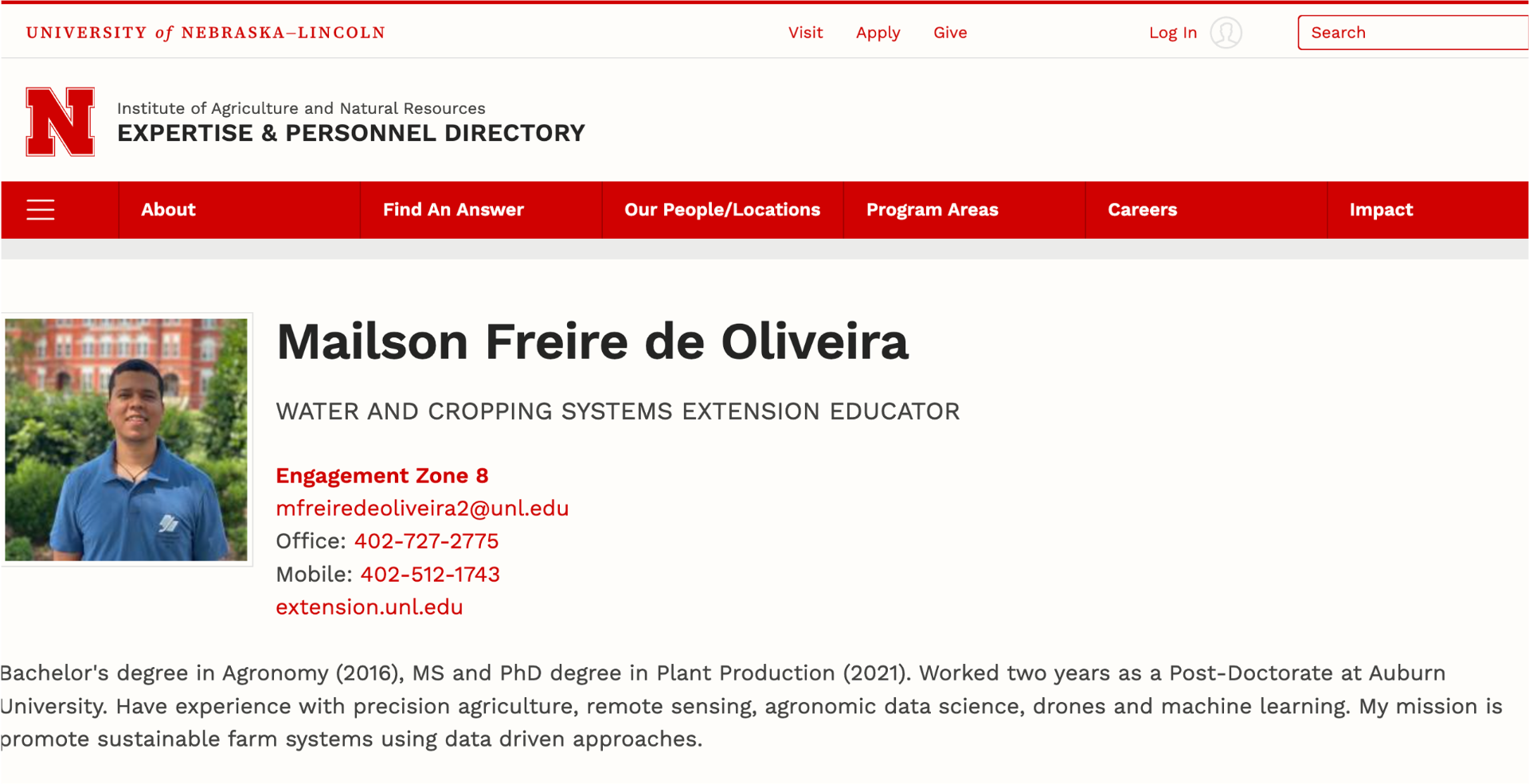
Dr. Mailson Freire de Olieira
Dr. Mailson Freire de Oliveira is an Extension Educator in Water and Cropping Systems at the University of Nebraska–Lincoln, serving Dodge, Washington, and Cuming counties. His work focuses on promoting sustainable farming systems through data-driven approaches and the integration of advanced technologies.
He holds a Bachelor's degree in Agronomy (2016) and Master's and Ph.D. degrees in Plant Production (2021), with specialization in precision agriculture, remote sensing, agronomic data science, drones, and machine learning. He also completed a two-year postdoctoral fellowship at Auburn University, where he deepened his expertise in digital agriculture and extension.
Dr. Oliveira is an advocate for the use of geospatial technologies, unmanned aircraft systems, and artificial intelligence to enhance agricultural productivity and resilience. His mission is to empower farmers and rural communities with science-based tools and knowledge that support informed decision-making and climate-smart practices.
He is an alumnus of the Rouverson Silva Research Group (RSRG/LAMMA), where he contributed to research in agricultural mechanization and digital agriculture in Brazil, laying the foundation for his international career.
